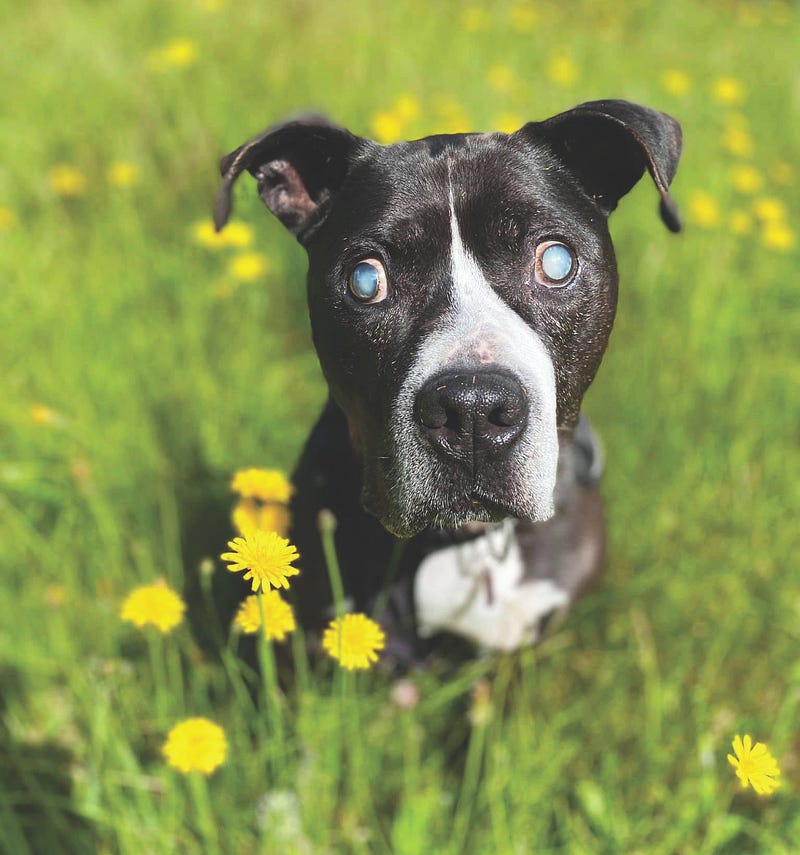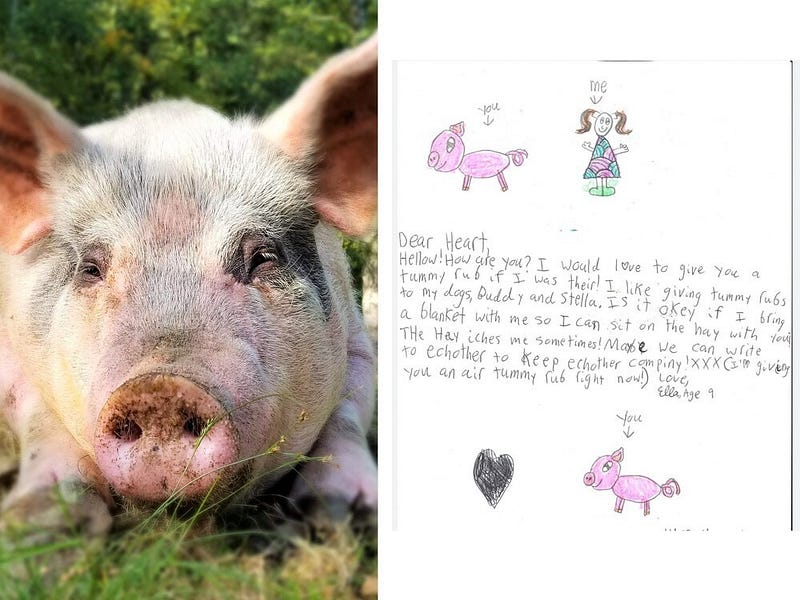Safety for Suki

Animal welfare workers give tips about how dog-lovers can avoid unintentionally supporting puppy mills.
Story by Melody Kazel
Suki the West Highland terrier is an investigator.
Her owner, Brenna Anderst, lit up when describing how Suki monitors every squirrel and bird that passes by on their walks. Terriers are often known for being “spunky,” Anderst said, and Suki definitely has a fun-loving nature, always wanting to make new friends.
While Suki is now a friendly, excitable dog, she wasn’t always. Anderst works as the education and advocacy coordinator for Pasado’s Safe Haven, the organization that rescued Suki. When team members found the terrier, she was a breeding dog at a puppy mill. Anderst said Suki didn’t even bark.
Puppy mills are large-scale, inhumane breeding programs that breed dogs for sale.
According to The Humane Society of the United States, there are about 10,000 puppy mills across the country. These mills sometimes have more than 200 dogs. Most of the time, dogs at puppy mills are kept in cages.
The United States Department of Agriculture requires commercial breeders who use cages to have enclosures at least 6 inches taller than the tallest dog’s head. However, this measurement does not include the dog’s tail and only allows room for the animal to stand comfortably, but not move around.
When Pasado’s Safe Haven rescued Suki, she was timid. Her hair grew over her eyes and was matted with poop. Sores covered her body, some of which will likely never go away. Aside from that, Suki did not have any other major physical injuries, which is not always the case for puppy-mill dogs.
“We saw other dogs from that same rescue, and one dog had a completely broken leg that had never been tended to,” Anderst said.
Pasado’s Safe Haven has rescued many dogs from puppy mills, including Zazu. He was found at a puppy mill where half the dogs were tied up, while the rest roamed free. Anderst said this left the tied dogs incredibly vulnerable.
Because of the significant difference in the physical and mental condition of puppy-mill dogs, Pasado’s Safe Haven designs individual rehabilitation programs for each dog. First, the organization deals with the dog’s immediate medical needs. Then, their certified behaviorist puts together a plan for each dog’s needs moving forward.

Tee, a visually-impaired dog, has a plan that focuses on surrounding him with familiar people, to make him feel safe and ensure he doesn’t run into things. “He knows that if somebody says ‘careful,’ he’s about to run into something or trip over something,” Anderst said.
With 10,000 known puppy mills across the country, Ashly Dale, Director of Operations at Bailing Out Benji, is fighting against large-scale, commercial breeding programs. Both Dale and Anderst suggested the same three tips dog-lovers can use to avoid unintentionally contributing to puppy mills.
1. Don’t buy puppies from pet stores
There are not many puppy mills in Washington state, in part because of a 2009 law, RCW 16.52.310, which made it illegal for a person to have “more than 50 dogs with intact sexual organs over the age of six months.” However, some pet stores in Washington still source their dogs from puppy mills in other states.
Bailing Out Benji, a nonprofit dedicated to creating a puppy-mill free United States, conducted significant data analysis to identify connections between several pet stores in Washington and out-of-state puppy mills.
“There definitely still is a problem in Washington with puppy mills and the pipeline, because we have pet stores that are importing thousands of puppies,” Dale said.
When Sally Powell, owner of Cloud Nine Doodles, was 17 years old, she locked eyes with a maltese at a pet store and had to take the dog home. “I didn’t realize at the time that pet store puppies are usually puppy-mill puppies,” Powell said.
According to the HSUS, most pet store puppies come from puppy mills. These dogs often have severe health problems. Powell said she got lucky because her Maltese, Sheba, was a healthy dog.
In partnership with Pasado’s Safe Haven and other organizations, Bailing Out Benji is lobbying the state legislature to pass The Humane Sales Pet Bill. The bill would ban the retail sale of dogs and cats, unless pet stores are partnering with an animal care agency to hold an adoption.
This legislation started gaining momentum at the local level. In July 2020, a Kitsap County ordinance banning the sale of dogs and cats from large-scale breeding operations went into effect. As a result, Farmland Pets and Feed in Silverdale, Washington, stopped selling puppies and kittens. From there, Olympia and Lacey, Washington banned the retail sale of dogs and cats in February 2020. After the Olympia ordinance passed, Puppyworld Olympia closed. The owner was unable to be reached for comment.
In 2020, the data Bailing Out Benji gathered and provided helped in the process of passing 32 pet-store ordinances.
“It is amazing to see this momentum happening,” Dale said. The goal of these ordinances is not to put pet stores out of business, Dale said, but to stop the puppy-mill pipeline in its tracks.
Some pet stores, like Petco, still allow dog adoptions, but through partnerships with animal welfare organizations, like shelters. Employees set up pens around the store. Tails swish back and forth as adults greet the puppies with child-like glee. With this model, The Petco Foundation has facilitated more than 6.5 million dog adoptions.
While preventing pet stores from selling puppies can help stop the puppy-mill pipeline, the issue is more complicated than that.
According to the HSUS, large-scale breeders are not required to be licensed by the USDA if they sell puppies to the public directly and allow buyers to see the dog in-person before making the purchase. This means they are not legally allowed to sell, buy or breed animals for resale to places like pet stores.
In locations without strong enforcement of local or state animal-welfare standards, these unlicensed breeders are largely unmonitored. They can also create deceptive websites that do not show the puppies in their actual living conditions, leading buyers to believe the puppies are being taken care of when they are actually part of a puppy mill.
So, how can dog-lovers distinguish between these inhumane breeding programs and ethical ones?
“You should be seeing how the dogs are living to ensure that you’re not accidentally supporting a puppy mill,” Dale said.
2. Visit the breeder’s property
Powell sits in her living room. Barking echoes as her daughter trains Mango, a Bernedoodle puppy who is staying for five weeks of extended training before going to his new owner. Shiloh, a golden doodle and Powell’s loyal sidekick, sits next to her. From the floor, a Bernese mountain dog puppy, who is staying with them until she is 4 months old, stares up with giant, unblinking eyes. While some breeders like to keep their dogs in kennels, Powell prefers a more hands-on approach.
“I don’t raise puppies that way and I won’t. My puppies are raised in my living room and in my kitchen,” Powell said. “It’s a lot of work, but it’s worth the effort.”
Her dog Gracie recently birthed a new litter. The puppies lay in an open box in the living room where they can become acclimated to interacting with other people and dogs.
Powell makes sure to health test all of the dogs. This can be expensive in addition to food and other supplies needed to raise healthy, well-tempered dogs.
“You’re not going to make loads and loads of money at it. That’s not why you do it,” Powell said.
John Cadman, owner of Pinnacle Black Russian Terriers breeding company, takes a similar hands-on approach. He has seven dogs on his property; Knopfler, Smiley, Pixie, Xena, Naya, Bo Peep and Zoe, who is not his dog and is stuck in the U.S. due to the pandemic.
His property has two acres of fenced land for the dogs to roam in. They are also able to enter the house whenever they want. Cadman said his first black Russian terrier was born accidentally, and his initial motivation for breeding was to have the dogs for himself. He said he admires their emotional intelligence.
Black Russian terriers function like a wolf pack with an alpha female, Cadman said, and is one of the reasons it would be difficult to have a puppy mill with these dogs. While it has happened in other states, the breed’s nature would make it hard to force them to mate.
Sometimes, Cadman has years without new pups because the females are “picky.” During mating season, the male dogs whistle and dance to impress the female. If they don’t do a good enough job, she doesn’t waste her time.
But avoiding supporting puppy mills doesn’t end with walking the breeder’s property.
“I try to educate people who apply as much as I can so that they will go out and support good breeders,” Powell said.
3. Continue to learn about animal welfare
Powell said she gives prospective dog owners a list of questions to ask to ensure they are purchasing from an ethical breeder. She advises people to ask breeders what health testing they do, where they raise the dogs and if you can visit the location in person. These questions can typically weed out bad breeders because they sometimes raise dogs in stacked kennels and don’t health test their puppies. Powell also said that prices below the typical going rate can be a sign that buyers might need to do more research on the breeder. Her dogs typically sell for between $3,000 and $3,500.
“As the old adage states … too good to be true often is,” Powell said in an email.
Education doesn’t end with asking the right questions. Anderst’s job at Pasado’s Safe Haven involves a lot of animal education. “I work on legislation and policy issues, but I also work on creating programs to take into classrooms that teach kids about kindness and compassion to animals,” Anderst said.
Due to COVID-19 restrictions, Pasado’s Safe Haven cannot hold educational field trips in person. Instead, the organization conducts them over Zoom.
“We’ve put together a collection of videos of specific animals. We share those videos in the presentation while talking about that specific animal’s rescue story, who they are and what their personality is like,” Anderst said.
The organization’s goal is to create compassion by showing the kids that animals are living, breathing creatures just like them. And Pasado’s Safe Haven works with more than just dogs; they are a haven for farm animals too. Students can even write letters to the many different creatures at the sanctuary.
The animals love to write back, Anderst said.

Animal education doesn’t end with school programs for kids. Adults can participate in educational programs, too. Before the pandemic, Bailing Out Benji held community events, such as dog walks, to educate the public.
One of Dale’s favorite memories from these events occurred when a woman approached the organization’s booth. She believed that pet stores in Washington did not have connections to puppy mills. Dale showed the woman Bailing Out Benji’s data and changed her perspective.
“That was a really cool moment because we don’t expect the public to know about puppy mills,” Dale said.
Since the pandemic, Bailing Out Benji moved their animal education online in the form of public service announcements and a podcast called “Truth, Lies and Puppy Mills.” Dale said the podcast has reached thousands.
Animal welfare organizations also have tip sheets that can provide dog-lovers with a way to avoid unintentionally contributing to puppy mills, like the one that left Suki with sores.
Though she was timid at first, Suki has changed a lot since her time in the puppy mill. According to Anderst, she is more confident and is even close with the household cat, Mooch. The two chase each other around and share toys. Suki’s current toy of choice is a squeaker, even though she hasn’t learned how to squeak it intentionally yet.
Anderst practices with her every day.
